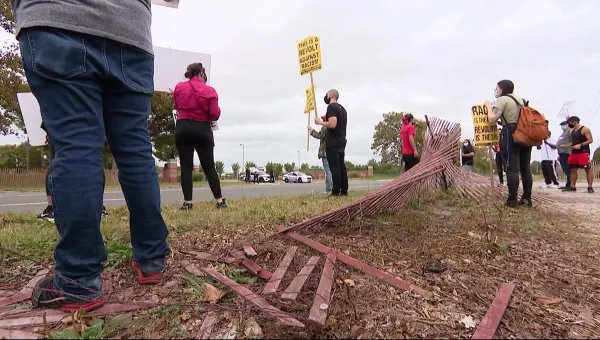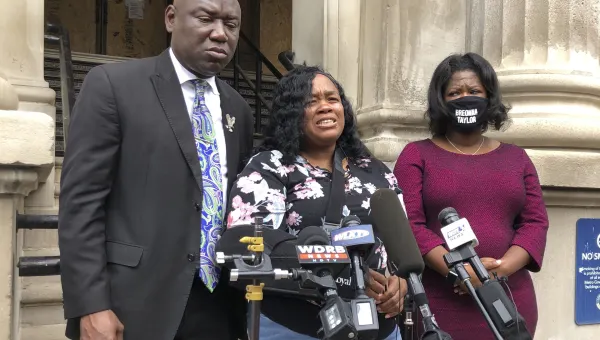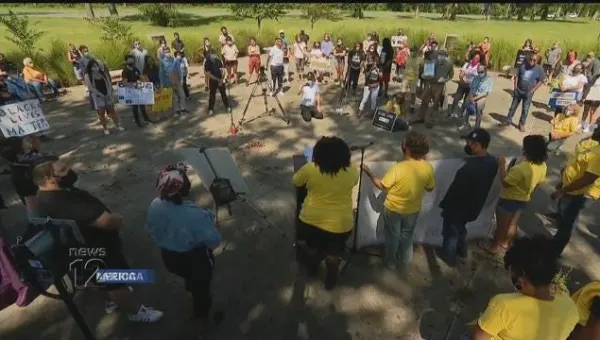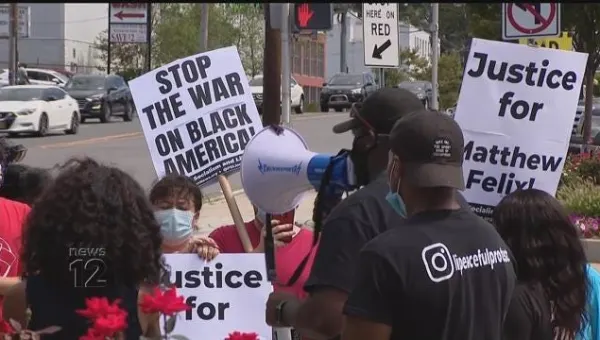Reflections on Race: 'I am hopeful that we are dismantling the racism that lives within systems'
Grier-Key says the East End is often thought of as a seasonal and wealthy community, but that's not the case for many year-round residents.
News 12 Staff
•
Jul 16, 2020, 4:49 PM
•
Updated 1,373 days ago
Share:
More Stories
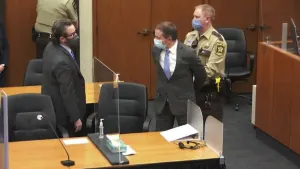
Chauvin's lawyer seeks new trial, impeachment of verdict
1,080ds ago
US indicts 3 on hate crime charges in death of Georgia man
1,086ds ago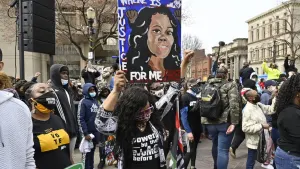
Justice Dept. opens policing probe over Breonna Taylor death
1,088ds ago2:04
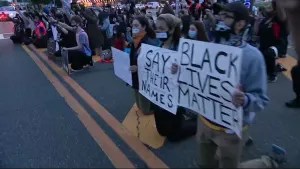
'Continue forward' - Advocates say Chauvin verdict is the start of police reform movement
1,093ds ago
Biden to America after Floyd verdict: ‘We can’t stop here’
1,094ds ago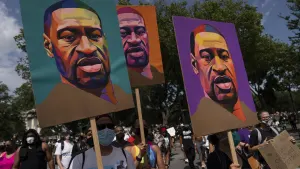
Minneapolis to pay $27M to settle Floyd family lawsuit
1,133ds ago
Chauvin's lawyer seeks new trial, impeachment of verdict
1,080ds ago
US indicts 3 on hate crime charges in death of Georgia man
1,086ds ago
Justice Dept. opens policing probe over Breonna Taylor death
1,088ds ago2:04

'Continue forward' - Advocates say Chauvin verdict is the start of police reform movement
1,093ds ago
Biden to America after Floyd verdict: ‘We can’t stop here’
1,094ds ago
Minneapolis to pay $27M to settle Floyd family lawsuit
1,133ds agoDr. Georgette Grier-Key is the executive director and chief curator of the Eastville Community Historical Society, who grew up in Uniondale. She's also a history and political science professor, and president of the Brookhaven Town NAACP.
The focus of the ECHS is to preserve the history of the Eastville area of Sag Harbor, which is one of the earliest known working-class communities with African Americans, Native Americans and European immigrants.
Grier-Key says part of the East End is often thought of as only a seasonal and wealthy community, but that's not the case for many of the year-round residents, some of whom are elderly. She explains how that perception has affected people there because of the pandemic, racism and economics.
"A lot of people don’t realize that we are a very seasonal community and for many of us that are here, year-round businesses, COVID-19, before the pandemic of racism that we’re experiencing with the marches, we are in a difficult situation because of where we live in the Hamptons," says Grier-Key. "The tracks that we fall on in regards to needs, whether it’s grants, we often don’t qualify because we are the Hamptons and we happen to live in a ZIP code, area code, that is sometimes not considered to be of need. They don’t realize that we have an aging, senior population, that once they retire, they do come out and retire to their part-time homes, full-time and there’s already a need here for seniors that live here year-round."
MORE: Reflections on Race: 'Our fear's a real fear because we know the odds of something happening'
MORE: Reflections on Race: 'Out here, people are very afraid to speak up'
MORE: Reflections on Race: 'Out here, people are very afraid to speak up'
Grier-Key says people may be unaware of the history of systemic racism and why it contributes to some of the reasons people are protesting. She hopes the fact that young people are taking part in the protests and other efforts to change racial inequities, that change will actually happen.
"I think what has happened for a long time, our schools have taken out civics education and we don’t make the correlation between what’s happening in our society with slavery and the derivatives of Jim Crow, segregation and the structural racism that has happened, to the reason why people are marching and the fact that we are just focusing on policing and policing is just a symptom of what people are marching for," says Grier-Key. "Here we are, many of the people who live and work here, basically work here, cannot afford to live here. We have an issue with affordable housing, that’s not being addressed. We have the worst transportation system, so many of the people that work here have a very hard time with getting around. So there are a lot of structural issues that have to be addressed and it’s great to march, it’s great to stomp their feet, but after that, what’s going to happen?"
MORE: Reflections on Race: 'Take off your colorblind glasses and look at the harm'
MORE: Reflections on Race: 'We need people to be more prominent activists in understanding privilege'
MORE: Reflections on Race: 'We need people to be more prominent activists in understanding privilege'
Grier-Key told News 12 that it's important to her that she keeps people focused on facts. So while there are a lot of people who are not Black and younger people taking part in the protests, she says history shows that has happened before. She points to the Vietnam War as an example. She also points to the AIDS crisis, as a health pandemic that was not handled properly and left certain people at a disadvantage. She is concerned about what people may or may not have learned from those events and whether that knowledge is being applied to today's issues. She's hoping there are real efforts from people taking part in the protests and those in decision-making positions, to work on and succeed at eradicating racism, sexism and economic injustice.
"I am hopeful that we are dismantling the racism that lives within systems. This younger generations are challenging their parents, they’re not just out there marching and then going back to their homes and reliving their same racist lives that they were living before. When you see younger generations challenging their parents, that means they’re also challenging themselves to stop believing in the same systems that they’ve been taught over and over again and that’s the thing that gives me hope, because 'isms' lie within all of us and we have to be honest with ourselves to eradicate them every day, and that’s what gives me hope," says Grier Key.
